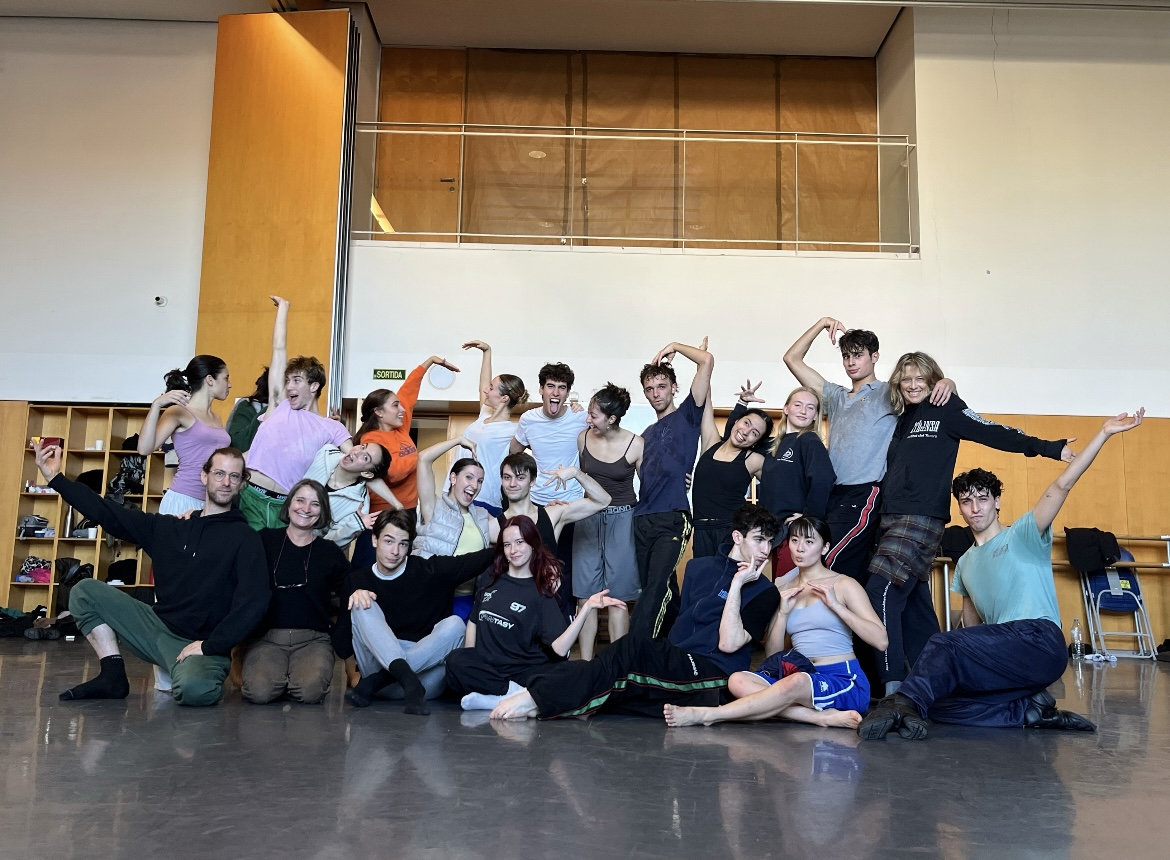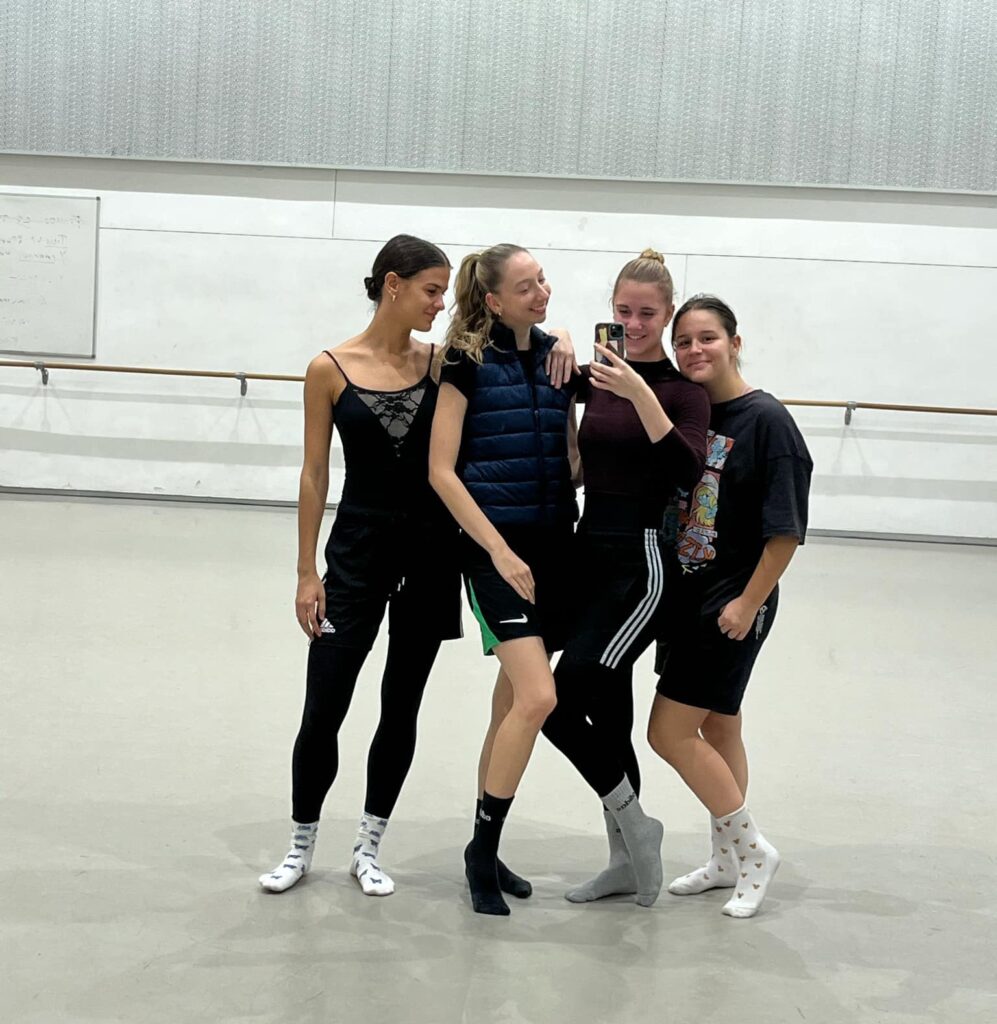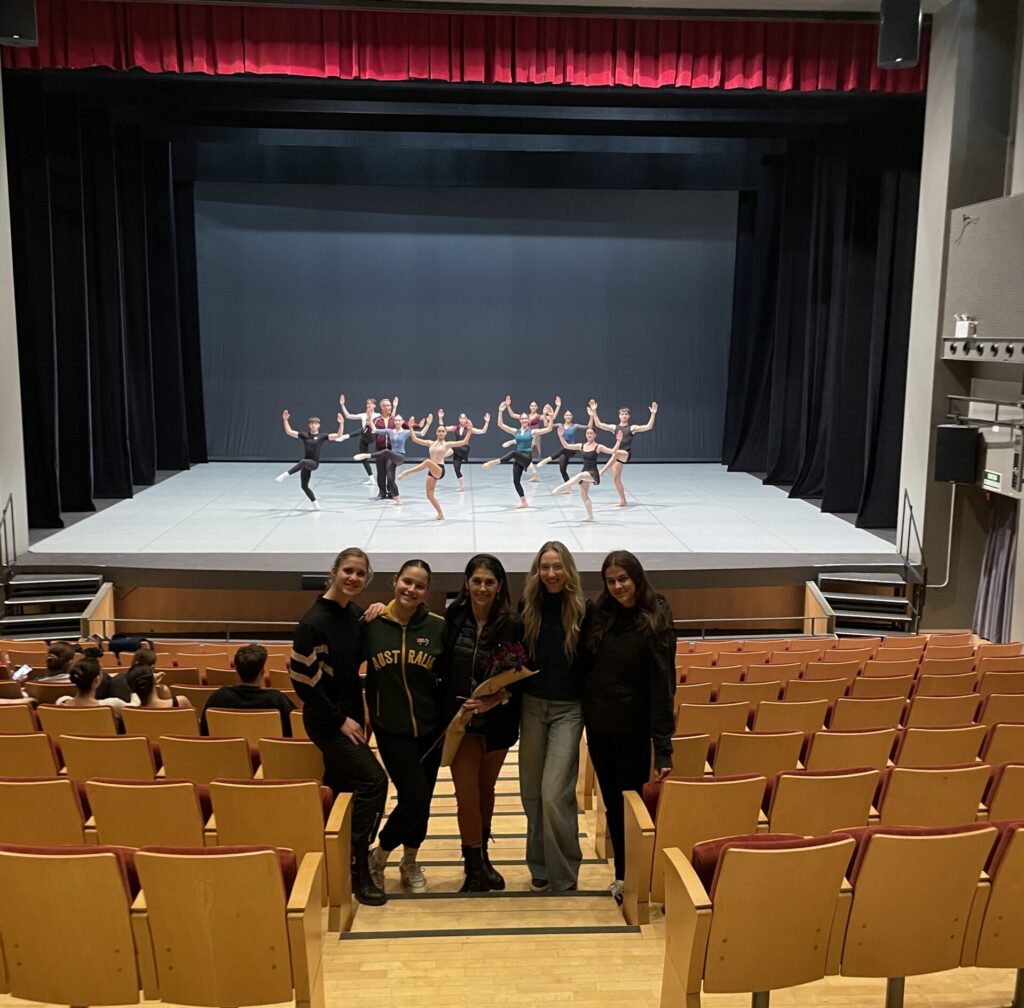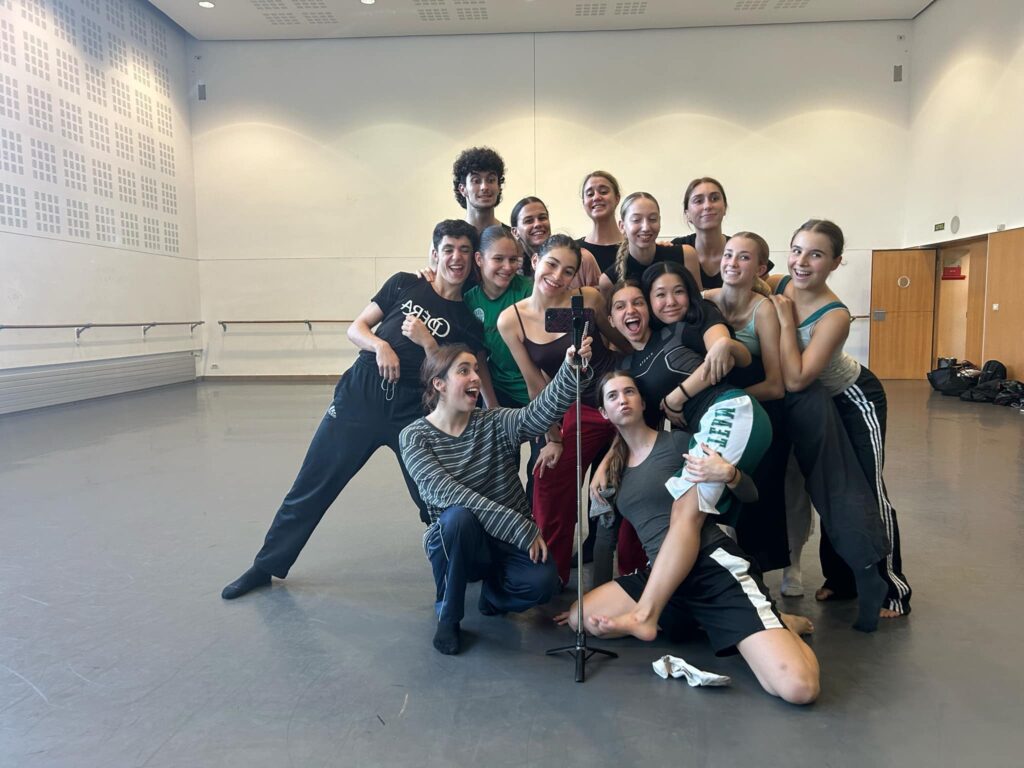
The final year students of the modern class of the Hungarian Dance University (HDU) are the third generation in the history of the university’s modern class who have the opportunity to spend a full semester in their fifth year within the framework of their traineeship. Under the Pannonia Scholarship Programme, six students are working these weeks in Barcelona: two with the IT Dansa Junior Company and four with the modern graduating class of the Institut del Theatre.
IT Dansa junior company trainees are Míra Éles and Ruslan Babácsi, while the Institut del Theatre modern graduating class scholarship holders are Léna Bondor, Dorka Imely, Hanna Mészáros and Rozi Kótai from HDU. During the two-month period, the students will have the opportunity to participate in various projects outside the university, at partner schools and with ensembles. This is an excellent opportunity for networking and networking development, as it gives the ensemble leaders a chance to assess the next generation, and the students have the opportunity to learn about the work of the ensembles from the stage and beyond. The Barcelona “group” is represented by Léna Bondor, who was interviewed.

How is life in Barcelona?
Six of us arrived in the city: two of us joined the IT Dansa Junior Company and four of us joined the modern graduating class of the Institut del Theatre. Practice takes place from 8:30 in the morning until 3:00 in the afternoon, and school runs until 8:00 at night, so we have a different schedule on weekdays. We always spend the weekends together, organising different activities. In two months, we have had time to get to know the whole city and culture.
How is your time spent at the ensemble different from your time at the university?
It’s completely different. While at home you get ballet and modern training alongside your repertory classes, here you’re mainly learning different pieces. Ballet classes are also held here every day, but everyone translates them into their own body language, as a kind of warm-up. Because of the different languages, communication was sometimes difficult, but in rehearsals we tried to speak English so that people who don’t speak Spanish or Catalan could understand. Communication with the ensemble managers went smoothly.
Do you have the basics to work for an ensemble?
Training here gives you a different perspective on dance. Even in ballet classes the difference was obvious, but over time we were able to pick up the culture of movement with some difficulty and some success, but we feel there are still a lot of gaps. Our goal is to make up for these by the time we start our career.

Who do you learn from?
At the school you can learn from the masters of the graduating class, including Mariana Giustina Baravelle, director of the Institut del Theatre. The modern classes are taught by Natalia Vinas Roig. We spent a week and a half with the 5th year class, so we were able to meet their masters. At the ensemble, the director, Catherina Allard, monitors us every day and is personally present at rehearsals, showing her love for the dancers. The director, Mathilde Van De Meerendonk, is also very often at rehearsals, sometimes even attending ballet rehearsals. Nora Sitges-Sardà also plays an important role giving the dancers instructions during the learning of the pieces. The ballet classes also gave us the opportunity to meet several masters, including Sandra Marín, Jeanne Solan and Jamal Callender. As this is a Junior Company, dancers spend two years here before moving on to another ensemble, so there is a turnover of people each year and as a result, the members are more involved with the newcomers, providing lots of help in teaching the pieces. When everyone knows their role, they usually call in a choreographer who is in contact with either the piece or its creator and clears it up with the help of the company.
How regularly do you keep in touch with people back home?
We talk to our family members and friends on a daily basis, but we have also had people visit us for a few days. We also keep in touch with our classmates and masters.
How much of an opportunity is it for you to be in a new environment?
It was a great opportunity to get an insight into what is happening abroad and to work with many choreographers. We get a new perspective on the international dance scene. We also learn a lot of new dance techniques and styles.

Is it good or bad to know that your university years will soon be over? Maybe for the time being, but it’s coming to an end.
I have mixed feelings knowing that we are graduating this year. We loved our university years, but we are excited about what the future holds. This programme is a perfect conclusion, but it is also a start of a new life after university.
Has this opportunity helped you to better and more easily integrate into dance?
We have experienced what it is like to be taught in a language other than our mother tongue and what it is like to live and study away from home. We have developed a lot and met many people who work in the dance scene.


